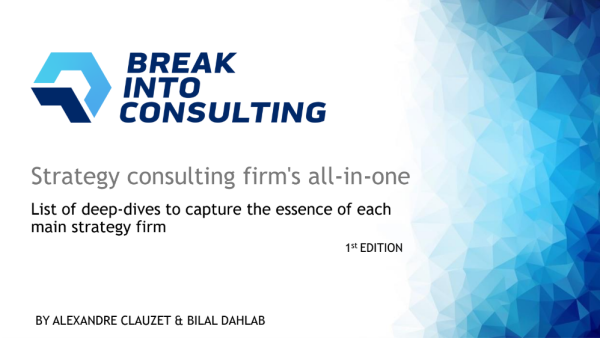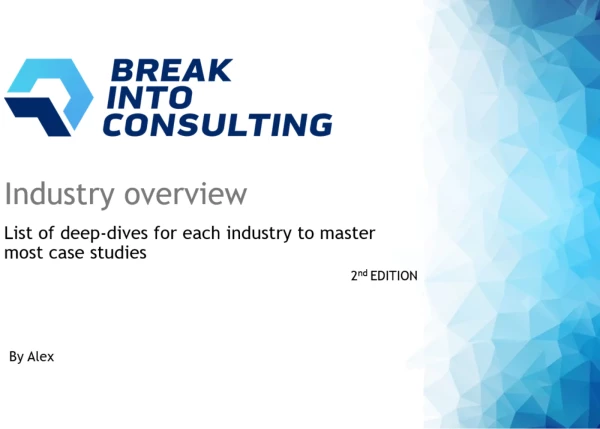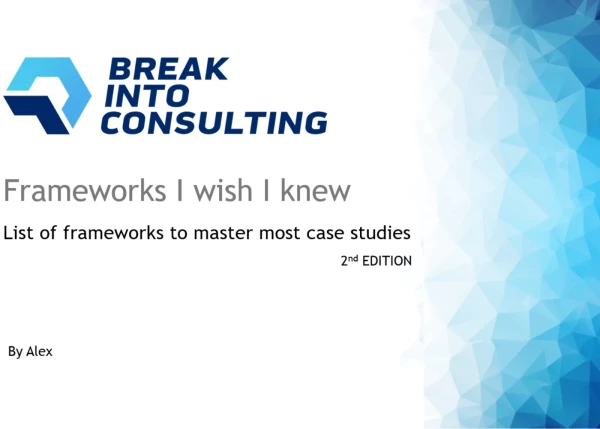Hi!
I have practiced about 20 cases with different partners, and it seems like most of them are trying to come up with as many as possible topics and sub topics to analyze - no matter what the question is. And the feedback I always get is something like: "Oh, you didn't mention this point, and this point, etc." Isn't this a very ineffective way to approach problems? After all, it feels to me like case solving is like the Olympic Games in memorizing bullet point lists. :-P How can I identify which topics really matter and which are less important? Isn't my ability to proiritize also a strength to show in a consulting interview?







